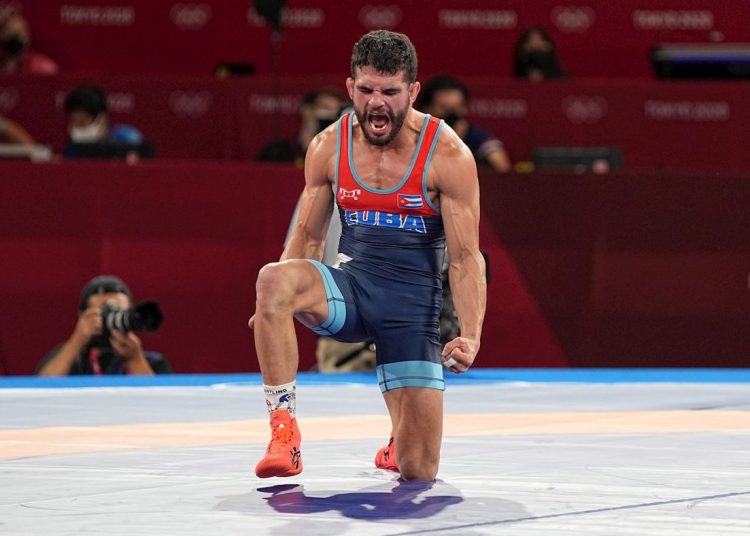Our blood pressure has not returned to normal since August 2. With a tremendous display of energy and intensity worthy of the greatest wrestlers in history, Luis Alberto Orta (La Güinera, 1994) altered the pulsations of a country and opened the golden path for Cuba in the Tokyo Olympics, something that was not predicted, not even in the forecasts most prone to fantasizing.
The nation still hadn’t completely woken up at dawn this Monday, when Orta defeated Japanese two-time world champion Kenichiro Fumita, struck down by the speed and determination of the young Havana gladiator, who had slipped into the finals with victories against two other world medalists.
The surprising escalade of the Cuban made the island start dreaming and confirmed Greco-Roman wrestling as the starting engine of the Caribbean teams in events under the five rings. The reason? Simple: in five of the last eight Olympic editions (from Barcelona 1992 to Tokyo 2020) this modality has marked the golden opening of the Cuban table of medals.
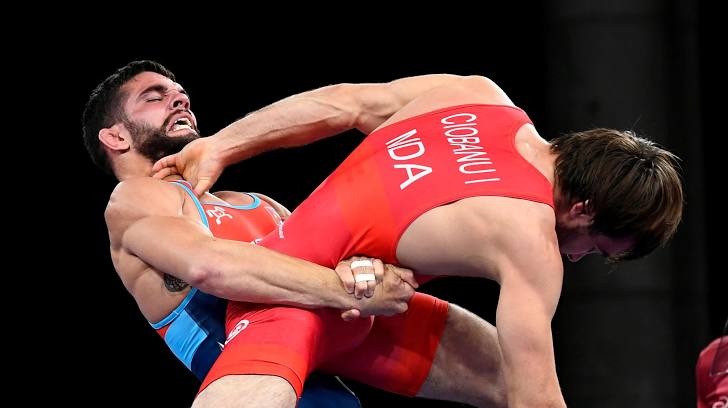
If we take a look at history, there are 12 athletes (from seven different sports) who have broken the ice and pushed our delegations along the gold route in the summer games, where Cuba indisputably leads among all Latin American countries, with more of 80 gold titles.
And since we are passionate about record books, we are going to delve a little into the athletes who have won the first gold medal for Cuba in each of the Olympic Games. I’m just letting you know that there is a lot of shine in this list…
Paris 1900
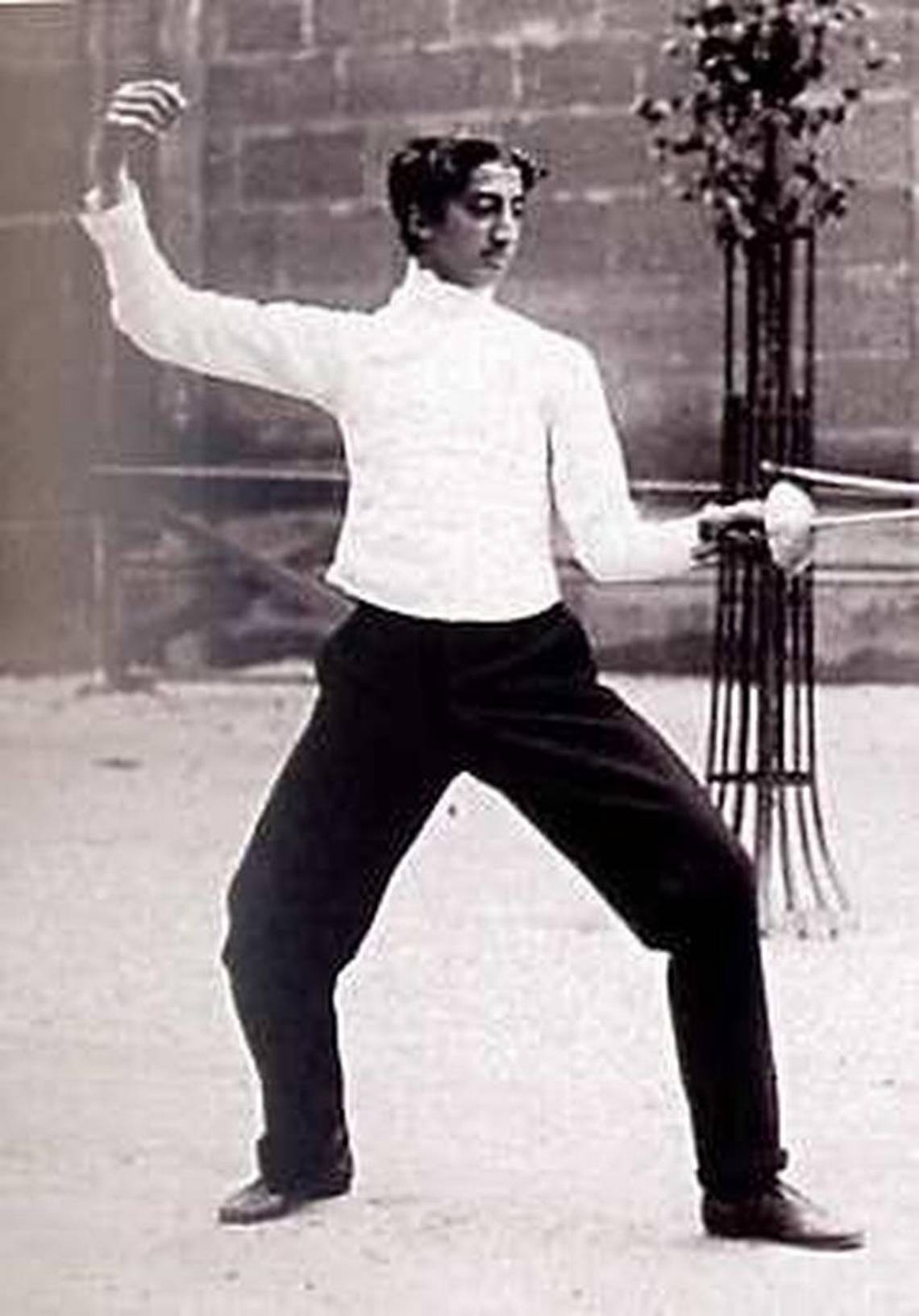
Fencer Ramón Fonst won the only gold medal for Cuba at the 1900 Paris Olympics, the second of the modern era. That medal was the first for the island and for Latin America in the event under the five rings.
When he was just 16 years old, Fonst took the crown in the amateur epee contest after defeating the powerful French team. The Cuban, a native of Havana, had spent a good part of his youth precisely in France, where he was trained as an athlete.
That was the beginning of a trail of triumphs for Fonst, who more than a century later continues to be Cuba’s top medal winner at the Olympic Games.
Saint Louis 1904
A full déjà vu from Paris. Again Ramón Fonst opened the triumphal path for Cuba in what has been the most relevant performance of a Cuban athlete in the Olympic context. The fencer won three titles in Saint Luis, two of them in individual events and the other by teams.
On September 7, 1904, at the Physical Culture Gymnasium, Fonst won the scepters for sword and foil, and the next day he won the foil by teams, to increase his total number of medals in the Olympic Games to five. Fonst returned to participate in the summer games in 1924, but did not climb to the podium.
Munich 1972
Cuba took almost 70 years to climb again to the top of the Olympic podium. In Munich 1972, the memory of Ramón Fonst was already very distant, so many consider that the titles achieved in the German city mark a second turning point for the island in events under the five rings.
That year, boxing began to earn the emblem of “flagship” with three scepters, the first of them on the chest of Orlandito Martínez, that riposte artist. The left-hander from Juanelo, in the San Miguel del Padrón neighborhood in the Cuban capital, was relentless in his second Olympic adventure, after being quickly eliminated in Mexico 1968.
In Munich, Orlandito started off badly, because he was knocked down twice in his first fight against Burmese Win Maung, but he recovered and was unstoppable until the finals, in which he defeated Mexico’s Alfonso Zamora. That same day, in the Games’ decisive big names, Emilio Correa and Teófilo Stevenson also triumphed.
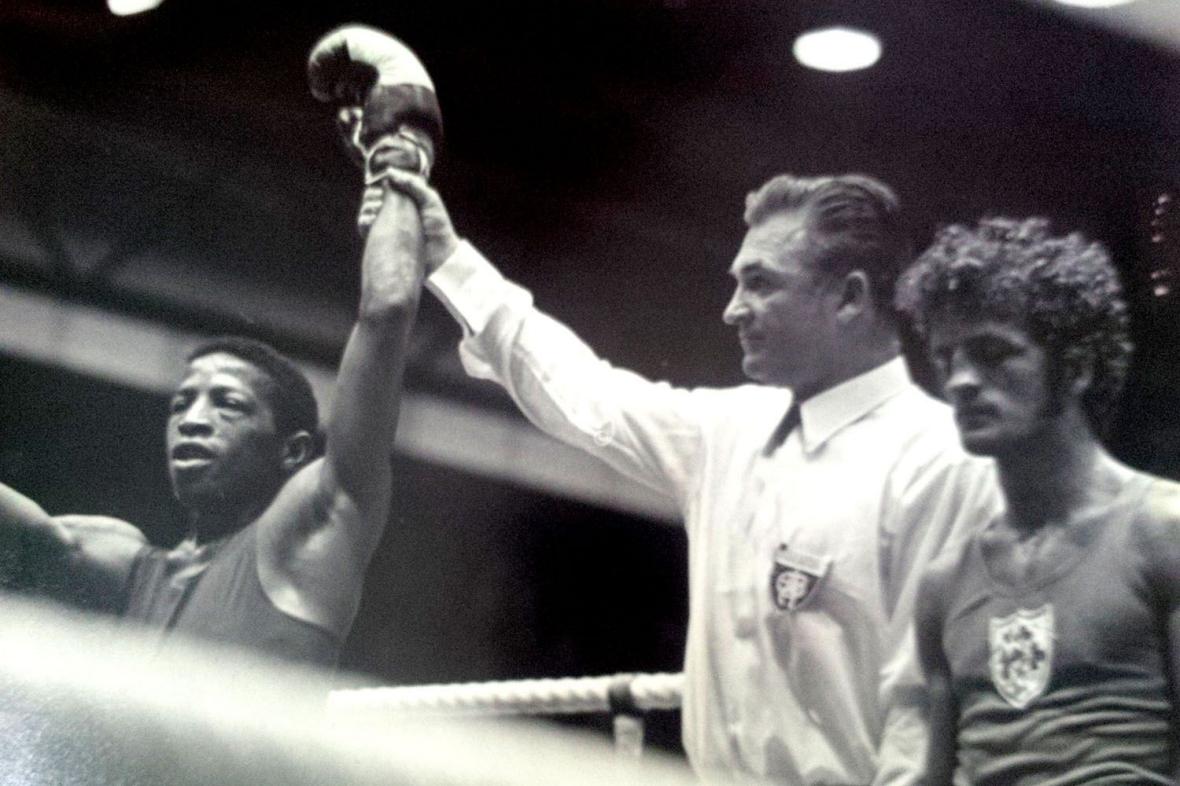
Regarding that adventure, Orlandito said the following in an interview with Joel García: “The truth is that I was not among any of the leaders’ medal forecasts. Before leaving they told me: we’re going to take you, but we know that you aren’t going to win medals. And what’s more, in all my fights I had a strong angina pectoris and was injecting myself. I came to recover a little in the discussion for the silver. The doctor was excellent and in the physical exams they did when each fight ended, he breathed softly so that they would not detect it and disqualify me. The only thing in my mind was that medal, that’s the truth.”
Montreal 1976
“Here comes Juantorena with the heart….” That phrase is engraved in the Cuban popular imagination and, each time it is mentioned, everyone travels to the Olympic Stadium in Montreal and encourages Alberto Juantorena to lengthen his stride and get the first gold medal in Cuban athletics in the history of the Olympic Games.
That 800-meter race is one of the most impressive in history, with an imperial Juantorena, to the point of lowering the world record to 1:43.50 minutes. He won the first Cuban title in Montreal on July 25, 1976, and if that was not enough, four days later, on July 29, he also won the 400-meter oval.
Juantorena’s performance in Montreal is worthy of study. Adding qualifying heats, quarterfinals, semifinals and finals, the athlete from Santiago was in seven races in a span of six days.
Moscow 1980
Weightlifter Daniel Núñez is one of the least publicized Cuban Olympic champions, but at the Moscow Games he marked the beginning of the Cuban delegation’s golden harvest, with a superlative performance in the 56-kilogram division, which he won indisputably on July 21, 1980.
Although he had been proclaimed world title-holder two years before the Russian event, Núñez arrived in Moscow with a bronze forecast, but he exceeded all Olympic expectations and not only dominated the category above the Soviet Yurik Sarkiyan, but he did so with a world record included in biathlon (275 kg) and in snatch (125).
“My life changed after the Games. When I returned with the title, everyone wanted to meet me all over Cuba,” Núñez recently affirmed to Trabajadores newspaper, where he has also referred to the complexities of a competition such as weight lifting.
“I remember that three days before competing (in Moscow) I was overweight by 700 grams. I went 48 hours without eating. I chewed apples and spat them out. I drank water with a spoon. Psychologically it was stressful. I managed to make the weight. My main rival was the Soviet. The pressure ate him up. Everything worked out perfectly for me. World and Olympic record.”
Núñez’s title was the first of Cuban weight lifting in the history of the Olympic Games and also the first of a harvest of eight golds in Moscow, the largest for Cuba to date. Just four days after she was crowned, María Caridad Colón won the javelin throw and became the first Cuban and Latin American woman with a scepter under the five rings.
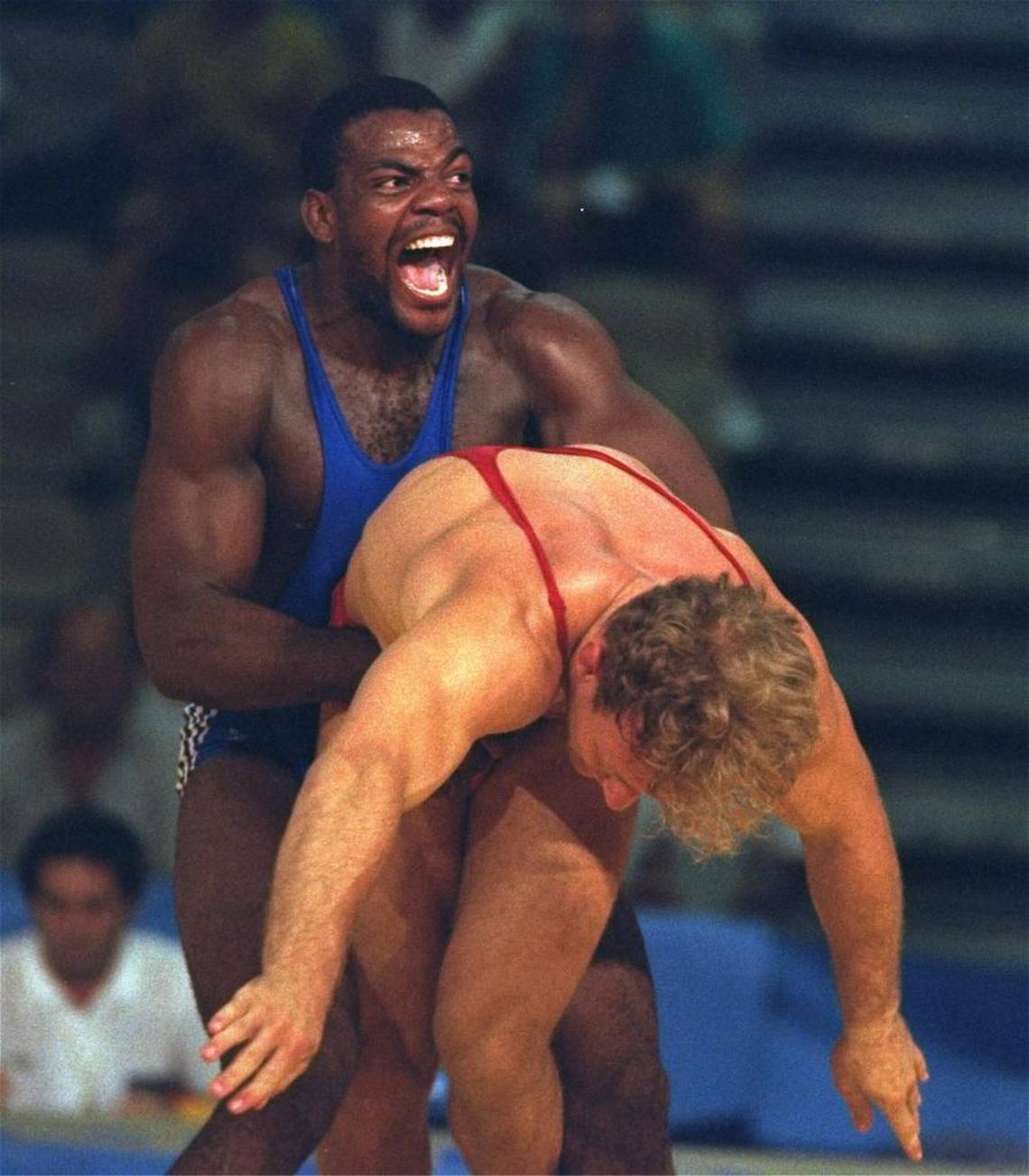
Barcelona 1992
After being absent from the 1984 Los Angeles and 1988 Seoul Games for political reasons, Cuba returned to competition under the five rings in 1992 with a generation of top-level athletes and a great ambition to make the island’s name felt in the Olympics.
The golden count of the Cuban delegation was opened by wrestler Héctor Milián, one of the leaders of the discipline at that time and standard-bearer of the delegation in Barcelona. World champion and winner of four World Cups, the prodigious Greco-Roman wrestler in the 100-kilogram category did not give margin to his rivals and advanced to the finals with pure demonstrations of power.
In the discussion for the scepter, the match was more demanding with American Dennis Koslowski, but 25 seconds before the end of the match, with a 1-1 score, Milián achieved an imbalance against the U.S. wrestler and sealed the first Cuban Greco-Roman wrestling crown in the Olympic Games.
Beyond Milián’s scepter, which came on July 28, 1992, Cuba did not have many more medals in the first week of the Barcelona Games, but an impressive closing of nine titles in the last three days of the event allowed it to seal the most impressive performance of a Caribbean delegation at the Olympics.
The formula resulted in an impressive performance by the Caribbean delegation, fifth in the overall table of medals thanks to 14 crowns and 31 medals after a spectacular round off.
Atlanta 1996
Cuba inaugurated its gold medal box early in Atlanta, where wrestler Filiberto Azcuy began to write his legend in competitions under the five rings. On July 22, 1996, on the fourth day of the games, the local from the town of Esmeralda snatched the honors in the 74-kilogram division.
At the age of 24, Azcuy experienced his definitive explosion in the U.S. city, where he passed like a steamroller over his first rivals, until in the semifinals he met the Russian Mnatsakan Iskandaryan, title holder of Barcelona 1992 and world champion.
The match, early finals, was defined by the minimum favorable to the Cuban, who later completed the process in the finals against the Finn Marko Asell, ousted by a wide slate.
Filiberto Azcuy would return to the Olympic Games in 2000, in faraway Sydney, where he won his second summer title and became the first Cuban two-time wrestling champion under the five rings.
Sydney 2000
The image of Legna Verdecia projecting the Japanese Noriko Narazaki on the Australian tatami mats and her subsequent celebration, with a beautiful smile and blowing kisses to all those present at the Sydney Convention and Exhibition Center, are part of one of the most memorable episodes of Cuba’s Olympic history.
On September 17, 2000, just 48 hours after the opening of the Sydney Games, Legna put a country on its feet with her triumph over Narazaki, a sweet revenge after losing the 1999 World Cup finals against the Asian judoka. In case there were doubts, that victory helped her inscribe her name as one of the most fighting judokas and with the best technical arsenal among all those who have passed through the Cuban national team.
Legna was the first Cuban champion at the Sydney Games, where female judo achieved an unprecedented leadership by nations, also with Sibelis Veranes’s scepter. For the island’s delegation, the Australian competiton was marked by emotion, with the spectacular comeback of the “Morenas del Caribe” volleyball team in the finals with Russia, the Olympic jump of Iván Pedroso, the golden race of Anier García or the surprise of Ángel Valodia Matos …
Athens 2004
Yumileidi Cumbá has August 18, 2004 as one of the most important dates of her career. That day, at the Olympia stadium, the venue where Olympic competitions were held in ancient times, the Cuban woman starred in a spectacular comeback to win the silver medal in shot put at the Athens Games.
Cumbá entered the last round of shot puts outside the podium, but her shot was 19.59 meters and she climbed to second place, displacing the German Nadine Kleinert. Ahead of them, the Russian Irina Korzhanenko widely dominated with a shot of 21.06.
However, five days after the competition, on August 23, 2004, the Cuban delegation in Athens got the news that a Russian shot-putter had been disqualified for consumption of prohibited substances, which gave Yumileidi Cumbá the seat of honor and Olympic glory.
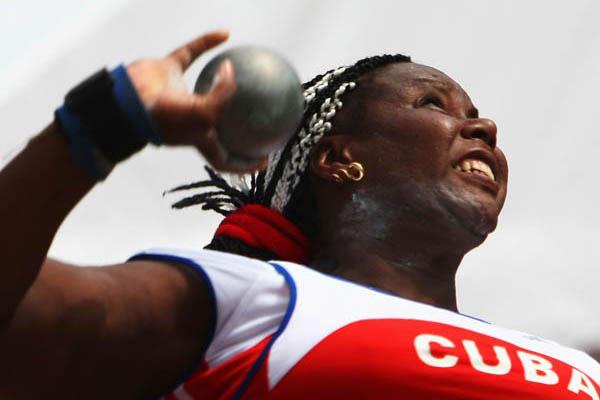
At that time, Cuba did not have gold medals in Athens, so, unexpectedly, Cumbá became the island’s first champion in the 2004 summer games. Two days after, the baseball team also won gold and gave the final push to the delegation, which won seven titles between August 27 and 29 and finished in eleventh position in the Games’ table of medals.
Beijing 2008
In few Olympic Games, Cuba has felt as much tension as in Beijing 2008, where disappointments over finals and key lost duels piled up. The curse threatened to spread to the entire delegation, which was in danger of being left without titles for the first time in 40 years.
However, Mijaín López came to the rescue and began his dynasty in the super heavyweight division of Greco-Roman wrestling, in which he already has a record of four crowns. He won the first in Beijing, where he was confirmed as the best gladiator of the moment, after winning the 2005 and 2007 World Cups. The Pinar del Rio athlete got even for the defeat in Athens against the Russian Khasan Baroev, his victim in the finals.
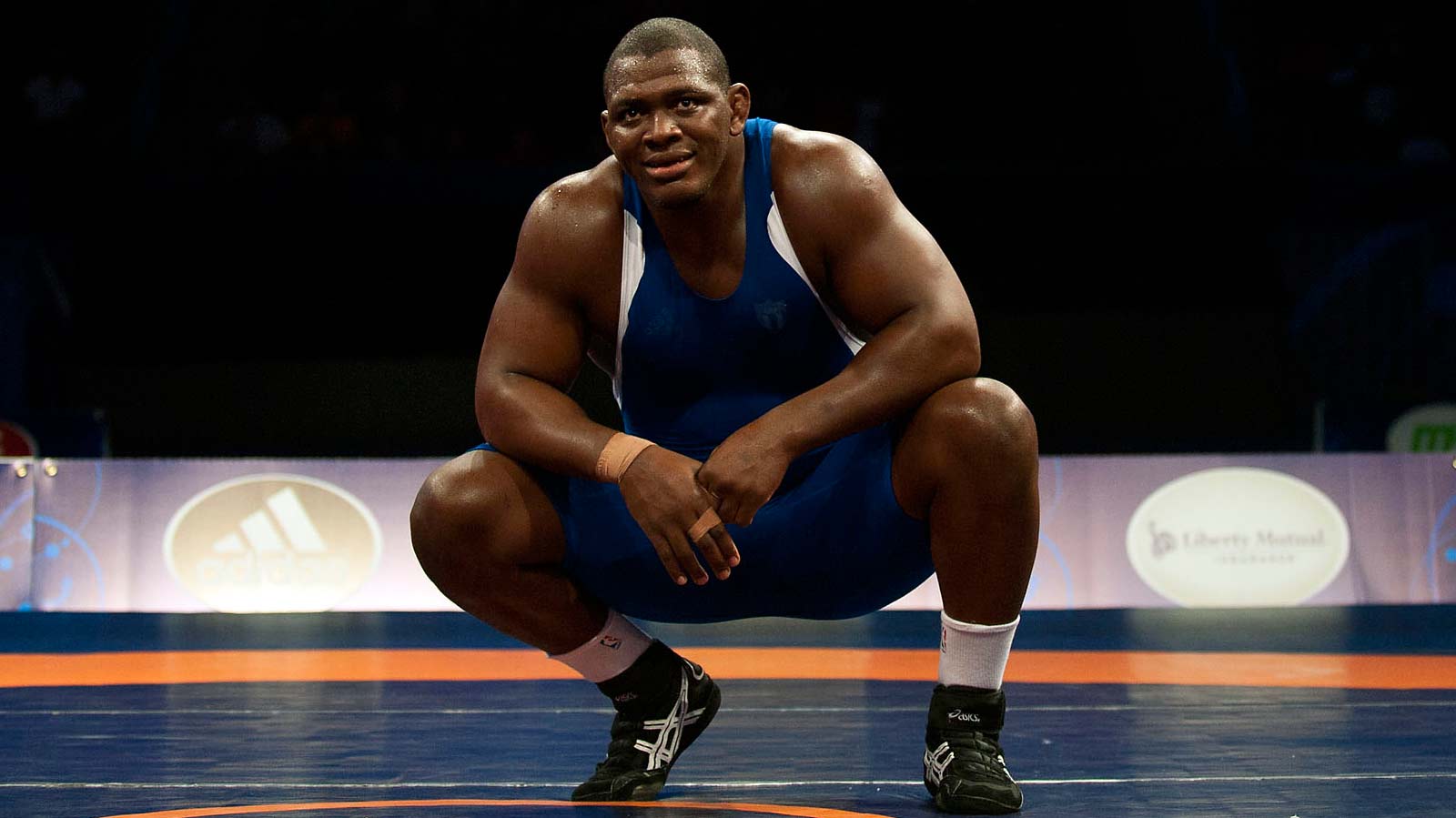
Mijaín López won his first Olympic title in Beijing 2008. Photo: NBC Olympics.
For Cuba, Mijaín’s scepter was a breath of air at the 2008 Games, although defeats in momentous fights continued to be the tonic, including the severe blow suffered by of the all-powerful baseball team.
In the end, the island finished the Asian event with two gold medals because of the success of Dayron Robles in the 110-meter hurdles. Years later, Yipsi Moreno also received the gold medal of the hammer throw because of the disqualification of the Belarusian Aksana Miankova, who was tested positive in an anti-doping control.
London 2012
The 25-meter rapid-fire pistol changed its definition format for the finals of the specialty in London 2012. With life or death rounds, more excitement was sought and the objective was more than met, and if not ask the millions of Cubans who followed, shot by shot, the performance of Leuris Pupo, one of the most unexpected champions in the island’s Olympic history.
The athlete from Holguin, in his fourth Games, showed nerves of steel and cold blood at the moment of truth, with a shot of 34 points that was an Olympic record. Pupo beat the Indian Vijay Kumar and the Chinese Ding Feng, who could not withstand the four perfect rounds of the Cuban, the island’s first champion in sports shooting under the five rings.
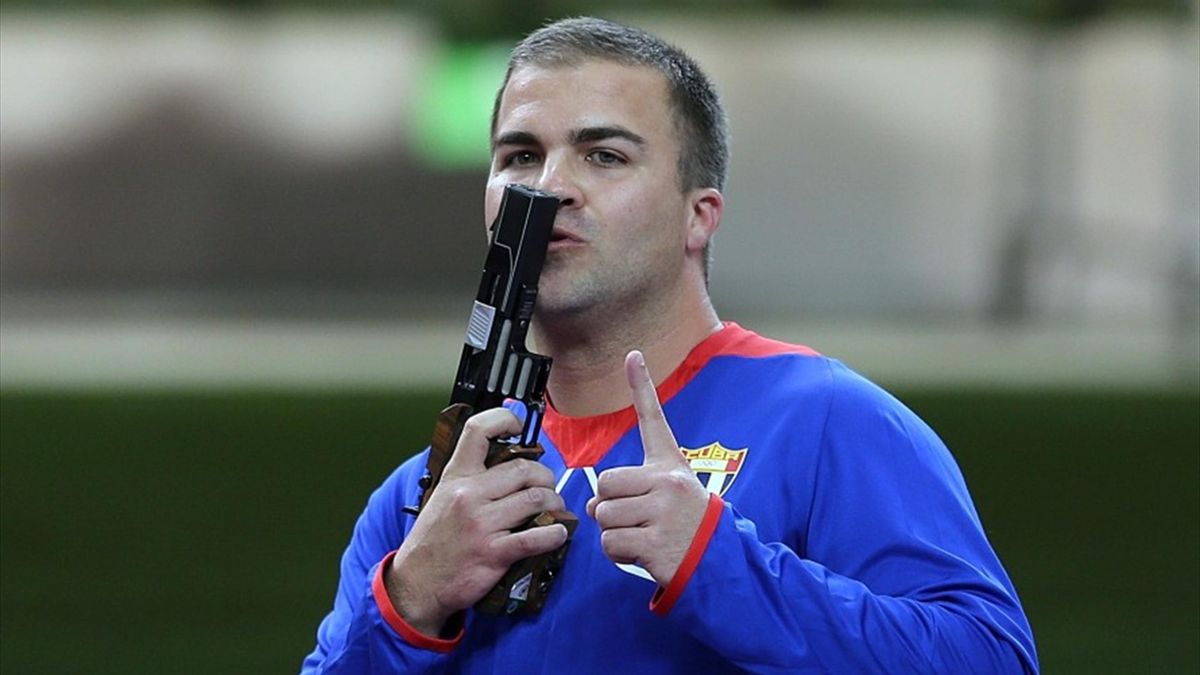
After not being able to win more gold medals at Beijing 2008, Cuba managed to activate its gold box in London on August 3, during the first week of the Games. That was a good precedent and a boost for the delegation, which ultimately won five titles in the British capital.
Rio de Janeiro 2016
He did not arrive being the undisputed favorite, but the rivals already knew that Ismael Borrero was an extremely dangerous wrestler in the 2016 Rio Games. World monarch a year earlier, the Cuban had shown feline instincts and an unusual speed of movements, two important weapons to fight for the medals in the Brazilian city.
The Santiago athlete started throwing down rivals, gaining confidence and putting the devil in the wrestlers left in the competition, intimidated by the power of the Cuban, whom many on the island did not see as a champion.
However, the indomitable gladiator was in charge of ruining the forecasts and writing his own golden story in Rio, a pleasant surprise for the island’s partials and for the delegation, which after his victory on August 14, picked up speed and won another four crowns in a matter of six days.
Ismael Borrero was the Luis Orta of Rio, or was it Orta who was the Borrero of Tokyo.
Ismael Borrero after winning the gold medal in the 59-kg division of Greco-Roman wrestling on Sunday at the 2016 Rio de Janeiro Olympics. Photo: Markus Schreiber/AP.

